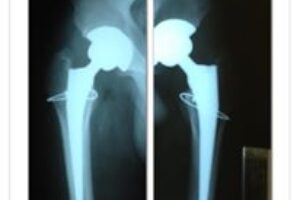Crohn’s disease is a chronic inflammatory bowel disease (IBD) that causes inflammation and damage to the digestive tract. It can affect any part of the digestive tract, from the mouth to the anus, but most commonly affects the small intestine and the colon. The exact cause of Crohn’s disease is not known, but it is thought to be related to an overactive immune response to the bacteria in the digestive tract, as well as genetic and environmental factors.
Symptoms of Crohn’s disease can vary from person to person and can range from mild to severe. Common symptoms include abdominal pain, diarrhea, rectal bleeding, weight loss, fatigue, and fever. In some cases, people with Crohn’s disease may also experience complications such as intestinal blockages, abscesses, and fistulas.
Treatment for Crohn’s disease is aimed at controlling inflammation and reducing symptoms. There is no cure for Crohn’s disease, but with proper treatment, most people with the condition are able to manage their symptoms and live a normal life.
Medications used to treat Crohn’s disease include:
- Aminosalicylates: These drugs reduce inflammation in the digestive tract and are used to treat mild to moderate cases of Crohn’s disease.
- Corticosteroids: These drugs are used to reduce inflammation and are usually prescribed for short-term use to treat moderate to severe cases of Crohn’s disease.
- Immunomodulators: These drugs suppress the immune system and are used to treat moderate to severe cases of Crohn’s disease that do not respond to other treatments.
- Biologics: These drugs target specific proteins in the immune system that are involved in the inflammation process and are used to treat moderate to severe cases of Crohn’s disease that do not respond to other treatments.
In addition to medications, lifestyle changes can also help manage symptoms of Crohn’s disease. These may include:
- Eating a healthy diet: They may also need to avoid certain foods that can trigger symptoms.
- Taking supplements: People with Crohn’s disease may need to take vitamin and mineral supplements to make up for any nutrients that are not being absorbed properly. You and your physician will discuss this if necessary. Not everyone has nutrient deficiencies but some may.
- Managing stress: Stress can trigger symptoms of Crohn’s disease, so people with the condition should practice stress-management techniques such as yoga or meditation.
In some cases, surgery may be necessary to treat complications of Crohn’s disease such as intestinal blockages, abscesses, or fistulas.
In conclusion, Crohn’s disease is a chronic inflammatory bowel disease that can cause a variety of symptoms and complications. While there is no cure for Crohn’s disease, proper treatment can help manage symptoms and improve quality of life. Treatment typically involves medications to control inflammation, lifestyle changes, and in some cases, surgery. If you think you may have Crohn’s disease, it is important to see a doctor for an accurate diagnosis and to discuss treatment options.
